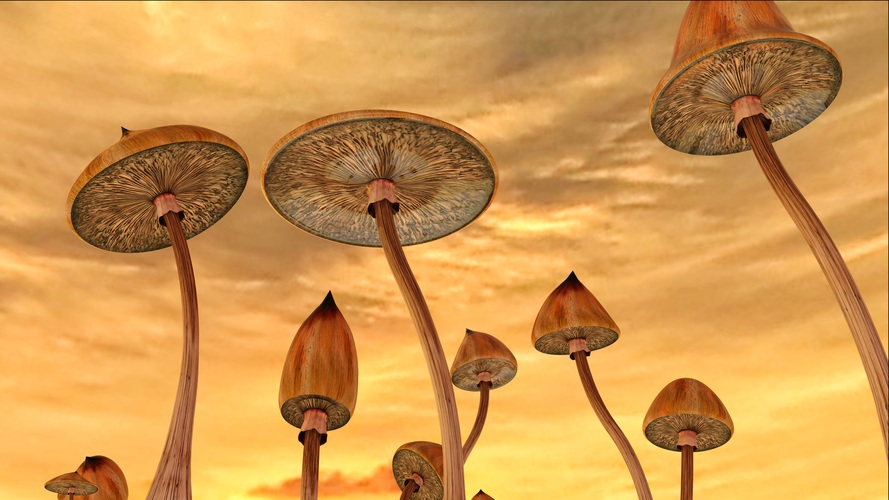Lauren Alderfer, PhD, is the author of Mindful Microdosing: A Guidebook and Journal, published by Green Writers Press, available on Amazon.
BRATTLEBORO-I had the privilege of watching the Vermont government in action as it considered a bill that aims to remove criminal penalties for possessing, dispensing, or selling psilocybin and to establish a Psychedelic Therapy Advisory Working Group.
Together, a persuasive picture was painted as to why legalization is of timely interest in Vermont; indeed, it illustrates why legalization and regulations are being enacted throughout the United States.
The speed and detailed nuances each state puts into legislation will be interesting to follow. However, there were two fundamental issues that the Green Mountain state seemed to embrace: decriminalization and accessibility.
The benefits of the therapeutic use of psilocybin for mental health conditions such as depression, addiction, existential anxiety around death and other forms of anxiety, and eating disorders, to name just a few, have seen a growing body of clinical evidence to support its therapeutic use.
The testimony from Dr. Charlie MacLean of the University of Vermont Medical Center presented research that included opinions and input from many stakeholders.
The therapeutic use of psilocybin did not seem to be in dispute; rather, there appeared to be overwhelming support and interest for access to it in Vermont. Like the current legal use of ketamine in medical settings in the state, psilocybin would most likely follow a similar trajectory for therapeutic, medical use.
That is why the two remaining concerns - decriminalization and accessibility - could set Vermont apart as a leader for the nation. These concerns are not separate from the need to ensure safety.
In fact, safety concerns were highlighted in the second testimony, which was given by the psychedelics scientist Dr. Katherine MacLean (no relation), a Vermont resident and world-renowned advocate for the safe and accessible use of psilocybin.
Not only did she present scientific knowledge based on her years at Johns Hopkins, but she also shared her compelling personal story. Dr. MacLean highlighted how decriminalization would actually help normalize access to medical and legal help, invite more education for young adults to make informed choices, and lessen the stigma of using psilocybin to seek relief from pain and other difficult symptoms, cope with postpartum depression, or attain more well-being, as opposed to accessing psilocybin without any oversight.
With costs soaring up to nearly $20,000 for treatment in Oregon, one Vermont prerogative was loudly heard: S.114 needs to be inclusive so that access for all is possible. Access cannot be cost-prohibitive. This is a fundamental ethos of being a Vermonter.
The third testimony, from Kurt White, vice president of community partnerships and outpatient services at the Brattleboro Retreat, echoed these sentiments.
* * *
Though passing S.114 for therapeutic use and accessibility are easier hurdles to jump than decriminalization, the essence of the bill would dramatically change if decriminalization were excluded.
The testimony presented convincing reasons for decriminalization. What was not addressed was the fact that the medicalization of psilocybin is a growing trend, and one that removes access for many.
That is because therapeutic use involves a high dose of psilocybin, which is more appropriate in a medical setting. That is very different from microdosing, which involves ingesting a very small amount; the microdoser has no hallucinations and can go about daily tasks as usual.
With millions of Americans microdosing, this would certainly translate to a significant number of Vermonters. These people do not need a medicalized therapeutic model, and decriminalizing psilocybin embraces access for them as well.
Those testifying found health and well-being - not recreational use - to be the reasons people most often sought out psilocybin.
Vermont can do right for its people by being a leader in this fast-changing landscape where mushrooms - a fungi found in cow dung, and therefore prolific throughout Vermont - can be decriminalized and accessed for better health and well-being.
In other words, this is a clarion call to support Vermonters in their pursuit of more mindful living and greater balance and harmony.
This Voices Viewpoint was submitted to The Commons.
This piece, published in print in the Voices section or as a column in the news sections, represents the opinion of the writer. In the newspaper and on this website, we strive to ensure that opinions are based on fair expression of established fact. In the spirit of transparency and accountability, The Commons is reviewing and developing more precise policies about editing of opinions and our role and our responsibility and standards in fact-checking our own work and the contributions to the newspaper. In the meantime, we heartily encourage civil and productive responses at [email protected].
